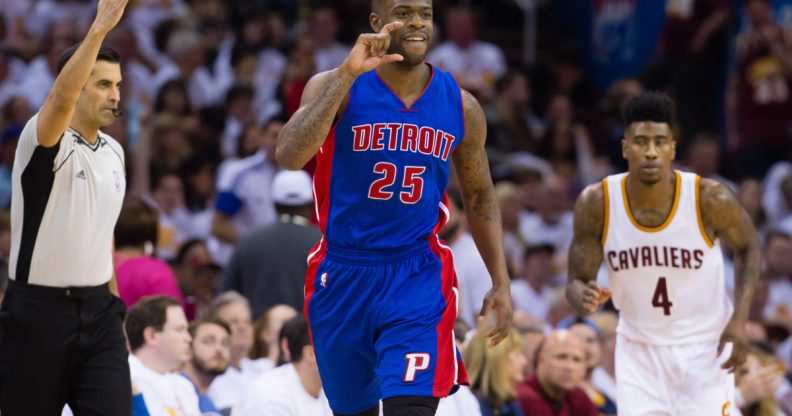Basketball pro Reggie Bullock opens up on acceptance following his trans sister’s murder

Basketball play Reggie Bullock appeared on a podcast to talk about the death of his sister, Mia Henderson, and the work he is doing to combat LGBT stigma in the sports community.
Mia Henderson, who is transgender, was killed in 2014. Shawn Oliver Hagerstown was charged with the murder in 2015, but was acquitted this week by a jury.

The Detroit Pistons player spoke to Vince Ellis about his sister, the reaction to her murder and how he has moved on from his loss.
“It was a tough situation. She was born Kevin, passed away Mia. I used to say I had two brothers and two sisters, but I have three sisters and one brother.
“She was very close to me. To have to lose someone so close like that. It was tough for me to swallow but now I stand up for the LGBT community, I support them. It’s my right for me to stand up for my sister, that’s the life she choose to live,” he said.
Bullock went on to knock media outlets for initially identifying Mia as just his sister, and stressed the importance of saying her name.
“The thing that hurt me the most is that they didn’t put her name first. It was ‘Reggie Bullock’s sibling’, that’s just crazy to me. That is a sibling of mine, but the whole message of support should have been around her. I had to talk about it publicly but the focus should have been on her,” he explained.
The basketball star went on to speak about his own acceptance of his sister’s trans identity.
“I had to educate myself but having a sibling that was part of the LGBT community meant that I learnt. I always got the message from my sister that she was happy to live her life.
“I can tell a person is strong if a person can hear this hatred and still be happy in their life.
Ellis quizzed Bullock, a North Carolina resident, over his view of the controversial HB2 law that prevents trans people from using bathrooms that correspond with their gender identity.
“If a person is happy as who they are then they should be respected and able to live in this country. My sister believed that she is a woman deep down, and she should have been able to live as she wanted and go to any bathroom.”

